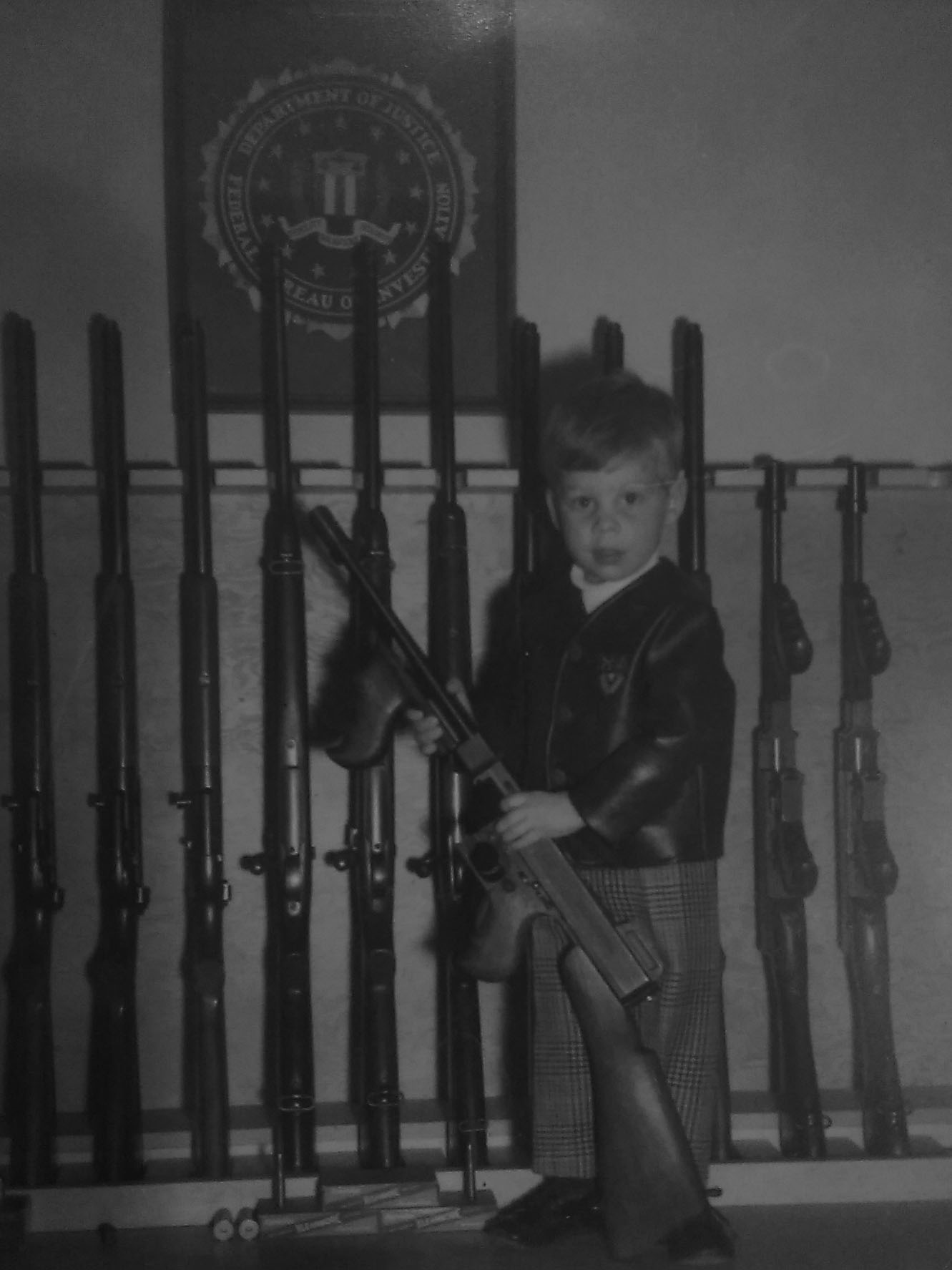When it comes to writing, we’ve all heard the mantra: Write what you know. I don’t believe for a second that a writer needs to have killed someone to write a story about murder. That’s what a good imagination is for. The writer who can weave experiences, conversations, and observations—real or imagined—into the background of a story will be able to create a much richer universe for characters to inhabit.
I often think back on growing up in an FBI household. My father would disappear for weeks and sometimes months at a time, chasing who knows what criminal around the vast landscape that is eastern Oregon. Agents, soldiers, spies, and cops would come by for dinner or to have a few drinks and eventually talk almost always turned to work.
I listened as often as I could. Their stories never got old and, of course, I was fascinated with the weapons—from my dad’s .357 Magnum that was always either on his hip or in his dresser drawer to Thompson submachine guns and exotic Soviet pistols. At some point I realized that these are not the things most kids got to hear or, much less, handle. At the time, though, it seemed completely normal and fun. Who would have thought that knowledge would become a cornerstone of the career I would eventually choose?
The moral of this story: Pay attention to everything, even those little things that are part of your everyday existence. You never know when the information you’re absorbing will send you off on a path you never imagined.
A Boy and His Tommy Gun

I was three years old when I went to the FBI weapons cache in Portland, Oregon. The Tommy gun I am holding was as tall as I was. I remember having to prop it on my foot to hold its weight.